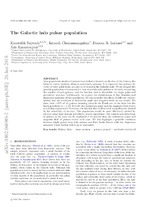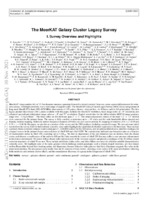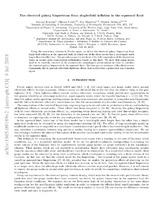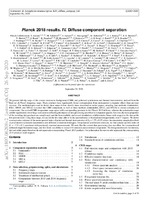Browsing Faculty of Natural Sciences by Subject "Galaxy"
Now showing items 1-4 of 4
-
The Galactic halo pulsar population
(Oxford University Press, 2018)Most population studies of pulsars have hitherto focused on the disc of the Galaxy, the Galactic centre, globular clusters, and nearby galaxies. It is expected that pulsars, by virtue of their natal kicks, are also to ... -
The MeerKAT Galaxy Cluster Legacy Survey: Survey overview and highlights
(University of the Western Cape, 2022)MeerKAT’s large number (64) of 13.5 m diameter antennas, spanning 8 km with a densely packed 1 km core, create a powerful instrument for wide-area surveys, with high sensitivity over a wide range of angular scales. The ... -
The observed galaxy bispectrum from single-field inflation in the squeezed limit
(IOP Publishing, 2018)Using the consistency relation in Fourier space, we derive the observed galaxy bispectrum from single- eld in ation in the squeezed limit, in which one of the three modes has a wavelength much longer than the other two. ... -
Planck 2018 results: IV. Diffuse component separation
(EDP Sciences, 2020)We present full-sky maps of the cosmic microwave background (CMB) and polarized synchrotron and thermal dust emission, derived from the third set of Planck frequency maps. These products have significantly lower contamination ...




